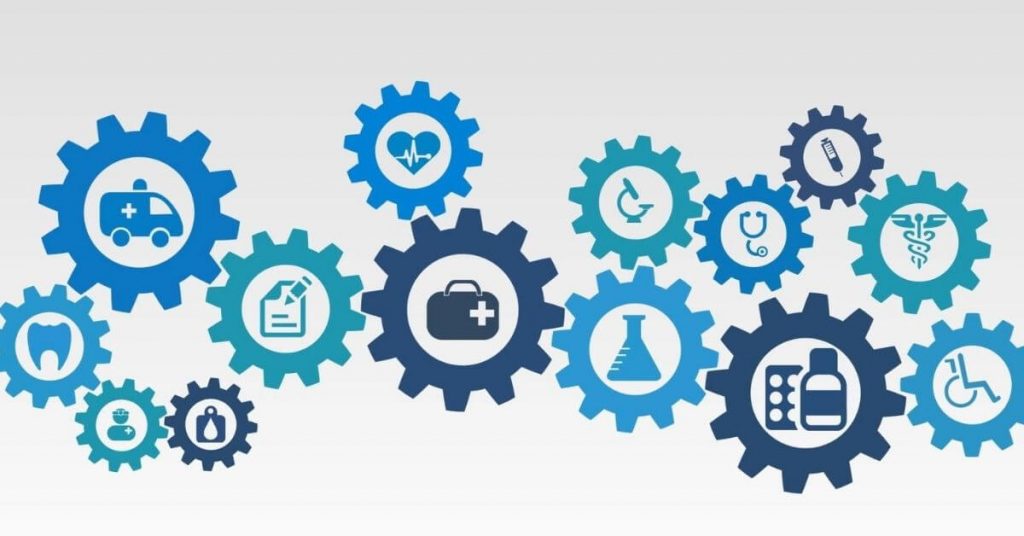You probably know that the digital health industry is a profitable business. Today, hundreds of applications for health monitoring, thousands of different healthcare technologies, gadgets and even microchips are available to us.
It would seem that such things and technologies are produced with the aim of helping people improve their health. However, not everyone knows that some things can be used against us.
There are over 200,000 health-related mobile apps on Google Play and Apple Store. How do such programs work? They track our movement and various other factors using sensors and other tools. This information can influence the way we treat ourselves and improve our health. But these opportunities also carry enormous responsibilities. Problems can arise in the area of ethics and safety.
How Can Health Apps and Healthcare Devices Work against Us?
1. Your healthcare device can spy on you
Some companies use unethical and illegal ways to collect information and monitor their potential and already existing customers and clients.
A study by EBlocker Company, that was sponsored by one Swiss newspaper, has found that healthcare industry websites monitor user activity through location-tracking programs. One company, for example, had 33 such programs.
Many people do not even suspect that a lot of information is being tracked, for example, when they visit a medical site in search of recommendations and enter the name of a disease in the search bar. By googling the symptoms of the disease, you can start the process of tracking your actions by medical sites.
2. The cost of your health insurance may increase
One of the oldest and largest insurance companies in the United States recently introduced a few new rules. A transition to exclusively interactive methods was announced, in which activity and health data are transmitted through wearable devices and smartphones.
The company representatives said they would encourage people who living healthier lives. It will appear in the form of discounts and gifts. It sounds good. But some experts believe that this may lead to the fact that the cost of health insurance for other customers may increase due to fines or punishment for refusing to use interactive devices.
3. The temptation of self-diagnosis
Information about the symptoms of various diseases has been freely available on the Internet for many years. However, more advanced new technologies are giving patients the ability to investigate their condition and even have genetic tests done on demand. Even government agencies such as the UK’s National Health Service have developed virtual assistant apps to cut back on doctor visits.
In 2016, the Royal Society of Pharmacy conducted a study that found that more than half of adults in Britain use the Internet instead of visiting a doctor. In the same year, a survey by the Mintel Research Center found that more young people trust health information posted online more than they do from doctors and pharmacists.
This is despite warnings from health services about the dangers of this approach. For example, an analysis of 23 health websites by the British Medical Journal showed that they gave the correct diagnosis only 34% of cases. So it is much better to visit a doctor’s office instead of surfing the Internet.
4. A health gadget may not be useful at all
Studies on the effectiveness of digital health technologies show uncertain results. An example is a 2017 University of Virginia study that analyzes the relationship between calorie counting and the use of fitness tracking technologies for eating disorders.
Or the case of one of the applications developed by the Swedish government to reduce alcohol consumption among students (Promillekoll). This healthcare app actually led to an increase in alcohol consumption among male students.
5. Unexpected consequences
Used by 700,000 people in 200 countries, Natural Cycles app has been recognized as the world’s first “digital contraceptive” – based on the calculation of a woman’s reproductive cycle and approved by the US Food and Drug Administration.
However, since July last year, this application and the developer company have come under increasing criticism due to the occurrence of unplanned pregnancies among users. So Swedish authorities reported that 37 of the 668 abortions performed at the Stockholm hospital were performed on women using the Natural Cycles app. In August, the UK Advertising Standards Office banned Facebook ads for this app, saying the claims of its high reliability were untrue.

